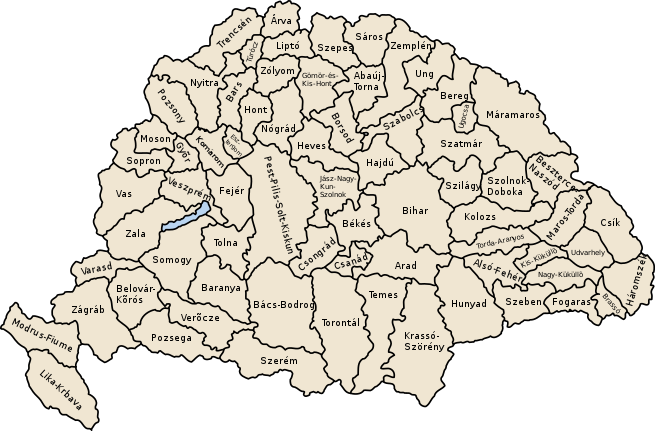
Main Difference
The main difference between County and City is that the County is a geographical and administrative region in some countries and City is a large and permanent human settlement.
-
County
A county is a geographical region of a country used for administrative or other purposes, in certain modern nations. The term is derived from the Old French conté or cunté denoting a jurisdiction under the sovereignty of a count (earl) or a viscount. The modern French is comté, and its equivalents in other languages are contea, contado, comtat, condado, Grafschaft, graafschap, Gau, etc. (cf. conte, comte, conde, Graf).
When the Normans conquered England, they brought the term with them. The Saxons had already established the districts that became the historic counties of England, calling them shires (many county names derive from the name of the county town (county seat) with the word “shire” added on: for example, Gloucestershire and Worcestershire).
The Anglo-Saxon’s “earl” and “earldom” were taken as equivalent to the continental use of “count” and “county” under the conquering Normans, and over time the two blended and became equivalent terms. Further, the later-imported term became a synonym for the native English word scir ([ʃiːr]) or, in Modern English, shire. Since a shire was an administrative division of the kingdom, the term “county” evolved to designate an administrative division of states (federal states like those of Germany and the United States) or of a national government in most other modern uses.
In the United States and Canada, founded 600 years later on the British traditions, counties are usually an administrative division set by convenient geographical demarcations, which in governance have certain officeholders (e.g. Sheriffs and their departments) as a part of the state/province mechanisms, including geographically common court systems.
A county may be further subdivided into districts, hundreds, townships or other administrative jurisdictions within the county. A county usually, but not always, contains cities, towns, townships, villages, or other municipal corporations, which in most cases are somewhat subordinate, or dependent upon county governments. Depending on the nation and the municipality and local geography, municipalities may or may not be subject to direct or indirect county control—the functions of both levels are often consolidated into a city government when the area is densely populated.
Outside English-speaking countries, an equivalent of the term “county” is often used to describe sub-national jurisdictions that are structurally equivalent to counties in the relationship they have with their national government; but which may not be administratively equivalent to counties in predominantly English-speaking countries.
-
City
A city is a large human settlement. Cities generally have extensive systems for housing, transportation, sanitation, utilities, land use, and communication. Their density facilitates interaction between people, government organizations and businesses, sometimes benefiting different parties in the process.
Historically, city-dwellers have been a small proportion of humanity overall, but following two centuries of unprecedented and rapid urbanization, roughly half of the world population now lives in cities, which has had profound consequences for global sustainability. Present-day cities usually form the core of larger metropolitan areas and urban areas—creating numerous commuters traveling towards city centers for employment, entertainment, and edification. However, in a world of intensifying globalization, all cities are in different degree also connected globally beyond these regions.
The most populated city proper is Shanghai while the largest metropolitan areas also include the Greater Tokyo Area and Jabodetabek (Jakarta). The cities of Faiyum, Damascus, and Varanasi are among those laying claim to longest continual inhabitation.
-
County (noun)
The land ruled by a count or a countess.
-
County (noun)
An administrative region of various countries, including Ireland, Japan, New Zealand, Norway, Poland, Romania, South Korea, Sweden, the United Kingdom, and the United States.
-
County (noun)
A definitive geographic region, without direct administrative functions.
“traditional county”
-
County (noun)
A jail operated by a county government.
-
County (adjective)
Characteristic of a ‘county family’; representative of the gentry or aristocracy of a county.
-
City (noun)
A large settlement, bigger than a town.
“São Paulo is one of the largest cities in South America.”
-
City (noun)
A settlement granted special status by royal charter or letters patent; traditionally, a settlement with a cathedral regardless of size.
-
City (noun)
The central business district; downtown.
“I’m going into the city today to do some shopping.”
-
City (noun)
a large town
“one of Italy’s most beautiful cities”
“the city council”
-
City (noun)
a town created a city by charter and usually containing a cathedral.
-
City (noun)
a municipal centre incorporated by the state or province.
-
City (noun)
a place or situation characterized by a specified attribute
“the staff were in turmoil—it was panic city”
-
City (noun)
short for City of London
-
City (noun)
the financial and commercial institutions located in the City of London
“the Budget got a stony reception from the City”
“a City analyst”
